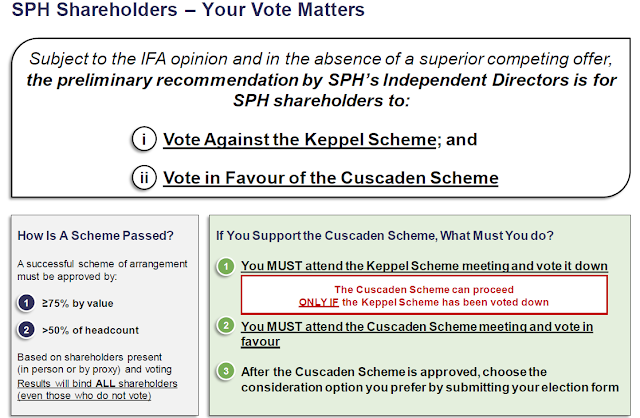Coming off the heels of the first REIT IPO (Daiwa House Logistics Trust) on the Singapore Stock Exchange is Digital Core REIT. From the many glorious reviews by many bloggers and cornerstone shareholders such as DBS lining up, we can foretell that Digital Core REIT seems to be on its way to a very smooth and successful listing. Nevertheless, I am not really excited by it and will not be taking part in its IPO- the reasons I will explain towards the end of this post. Let me start by putting a summary background about this second 100% pure Data Centre REIT that will soon be listed on the SGX followed by some quick highlights of its positive traits. Last but not least, prospective investors should take some caution for this data centre investments instead of thinking that US data centres are one of the safest investments out there- I will elaborate more on this point towards the end of this post.
1.Background:
The initial public offering (IPO) portfolio will comprise 10 freehold data centres in the US and Canada with a total net lettable area (NLA) of 1.2 million square feet (sq ft).
Four of the data centres are located in the Silicon Valley, with another 3 in Northern Virginia, 2 in Los Angeles and 1 in Toronto.
Portfolio occupancy is at 100 per cent with a tenant base comprising blue-chip companies including global cloud providers, global colocation and interconnection providers, social media platforms and IT solutions providers.
Weighted average lease expiry of the portfolio stood at 6.2 years based on base rental income for the month of June or 7.7 years by NLA as at end-June. Its distribution yield is expected to be 4.75% for 1st year and increase to 5.26% by second year.
2. Positive traits for Digital Core REIT IPO
The following are the good points I like about Digital Core REIT IPO:
(i). Sponsor is listed on the New York Stock Exchange and well known.
The sponsor Digital Realty is listed on the NYSE and is well known for its development and operation of data centres. Digital Realty was even involved with the sales of its data centres to Mapletree Industrial Trust in early January 2020. So in a way, we can see the footprints of Digital Realty in Mapletree Industrial Trust.
(ii). Alignment of Sponsor's interest with Digital Core REIT
Post-IPO, Digital Core REIT will have right of first refusal (ROFR) to a potential pipeline of over US$15 billion of data centres - both existing and under construction. Similar to the initial portfolio, the sponsor intends to co-invest in 10 per cent of each of Digital Core Reit's future acquisitions.
(iii). Significant debt headroom of US$596Mil for future acquisition
Digital Core REIT is expected to have an aggregate leverage of 27 per cent as at the listing date -significantly lower than its peers - giving it a debt headroom of up to US$596 million. This means room for taking on cheaper financing from bank borrowings to get a higher return for unit-holders.
3. Points to exercise caution before diving into this IPO
Despite the positive traits as aforementioned, I do have some serious reservation about jumping into this IPO:
(a) Withholding tax regulatory risk-30% downside risk to distribution yield
The problem with holding SGX listed REITs with US properties portfolio is the ever present significant risk that the US favorable tax rules for overseas REIT may be changed overnight and withholding tax may be applied which will reduce distribution by a hefty 30%. Many years ago in 2018 (if I recalled correctly), there was a big hoo-ha with Keppel-KBS US REIT as well as Manulife US REIT where their unit price crashed overnight due to uncertainties over the tax holding structure while pending clarifications from the US IRS. I reckon that the current high yield factors in the risk premium from changes in regulatory tax risk.
Anyway, the current approved tax planning always structure a shareholder loan extended to the US entity holding on to the properties and then charging an interest as a form of tax shield. The main way to repatriate profits will thus be via capital distribution via the return of the loan.
For those interested to understand more about the current tax structure to mitigate US withholding tax for US properties, please refer to my previous post on "Are The Distributions From Manulife US REIT (MUST) Sustainable? Clarifications from MUST's Investor Relation Team".
So, imagine if Digital Core REIT is caught in any such changes to tax regulation, its already low distribution yield of 4.75% will plunge to a miserable 3.33%. The low yield does not seemed worthwhile to undertake the risk especially with such a significant concentration of properties in the USA only.
(b) Worst market timing to choose for IPO- Pure bad luck to be caught with COVID Omicron variant
With stock markets dropping for the past 2 days in particularly with Moderna CEO scaring everyone with his comments that current vaccines will most likely be much less effective against Omicron variant, this is one of the worst possible time for Digital Core REIT to IPO. There are a lot of other alternative investments out there to exploit the sharp drop in stock prices. You can buy into banks or if you are into data centres can snap up Keppel DC REIT or Mapletree Industrial Trust to diversify away the over concentration risk with excessive properties holdings in the USA.
Parting thoughts:
I have decided to give the Digital Core REIT IPO a miss given that I am really not comfortable with the US regulatory tax risk vs the low distribution yield on offer of only 4.75%. My personal preference would be to take advantage of the numerous opportunities that arises during the current stock markets sell-off. For those subscribing for the IPO of Digital Core REIT, please note that the public offer will end at 12pm on 2nd December 2021 (Thursday) and publicly commence trading at 2pm on 6th December 2021 (Monday).













